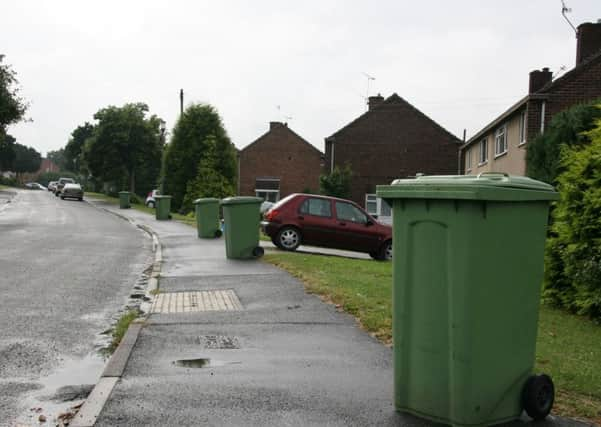New recycling figures are rubbish, but East Riding cleans up nicely


Some 44.3% of waste from households was recycled in 2015, down from 44.9% in 2014 and the first time it has fallen since 2010 when the monitoring began - though it is still at the second-highest annual rate on record.
There continues to be a wide disparity in recycling rates across England, with councils at the top of the table - South Oxfordshire, closely followed by East Riding of Yorkshire and Rochford - recycling, reusing or composting two thirds (66%) of household waste.
Advertisement
Hide AdAdvertisement
Hide AdThere is an European Union target for the UK to recycle at least 50% of household waste by 2020, but progress has stalled.
Levels of waste recycled from England’s homes also fell in 2015, from 44.8% the previous year to 43.9%, the first time it has dipped below 44% since 2011, the Government figures show.
But at the bottom of the table, the London boroughs of Barking and Dagenham, Lewisham, Westminster City Council and last-placed Newham, all had recycling rates of less than 20% in 2015/2016, figures reveal.
David Palmer-Jones, chief executive of SUEZ recycling and recovery UK, said the company’s analysis of the figures showed England’s recycling rate had dropped for the first time in 16 years.
Advertisement
Hide AdAdvertisement
Hide AdHe called for a “polluter pays” approach to consumer goods which would see producers or manufacturers taxed according to how much material was not recyclable, with the cost added to the product.
“The tax would help pay for better household collection of recyclables and help address the huge funding challenge that local government faces,” he said.
Biffa Municipal, which manages waste collection from South Oxfordshire District Council and another three of the top 10 local authorities for recycling, suggested lack of progress was down to a greater focus on the quality of materials and more rejection because of contamination.
Managing director Roger Edwards, said: “We should all work harder to ensure that household recyclables such as paper, card, plastics, and metal and glass containers are as clean as possible when put out for collection, and that they aren’t adulterated.
Advertisement
Hide AdAdvertisement
Hide Ad“Contamination can cause entire lorry-loads of recyclables to be rejected, at high cost to already-stretched councils.”
He also warned there was a mountain to climb if the UK was to hit its target of recycling 50% of household waste by 2020.